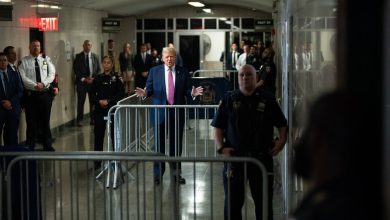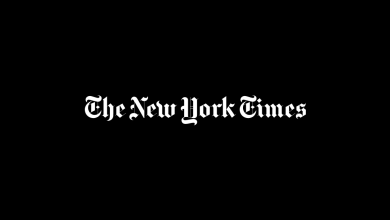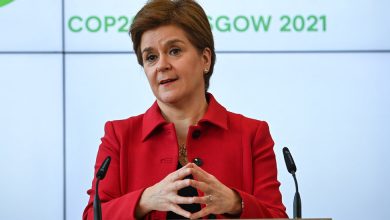The Allegations Against Musk


Credit…Pool photo by Patrick Pleul
Complications for the Twitter deal?
The news site Insider dropped a set of explosive allegations about Elon Musk last night. It reported that a former flight attendant on a SpaceX corporate jet accused Musk of harassment. Insider cited interviews and documents it had obtained to back up its reporting. (The New York Times has not independently confirmed the reporting.)
SpaceX reportedly paid the flight attendant $250,000 to settle a sexual misconduct claim against Musk in 2018. The payment was structured as severance. According to a declaration by a friend of the flight attendant seen by Insider, the flight attendant said Musk asked her to come to a private room during a 2016 flight and give him a massage, which was part of her regular duties. When she got there, Musk asked the flight attendant to “do more” than a typical professional message, the friend said in the declaration, according to Insider.
Musk denies the allegations. “If I were inclined to engage in sexual harassment, this is unlikely to be the first time in my entire 30-year career that it comes to light,” he told Insider, calling the story a “politically motivated hit piece.” Musk said Insider wrote the story to interfere with his acquisition of Twitter, seeming to confirm that he still wants to close a deal that he said was on hold just a few days ago.
The story could complicate Musk’s efforts to finance the deal. Musk has been in talks with additional investors, but the sexual harassment claim could turn some away.It is also likely to cause unrest among Twitter employees, particularly given that Musk has told investors he will be interim C.E.O. after the deal closes. One could also argue that SpaceX’s reported use of a nondisclosure agreement with the accuser is at odds with Musk’s professed commitment to free speech, which is at the heart of his justification for buying Twitter.
The allegations reinforce concerns about his use of the platform. Musk, like some of the venture capital firms backing his bid, has taken aim at traditional media outlets in recent years. And critics of Musk’s bid have said it’s an effort to seize control of a massively important media platform. Indeed, at around the same time that Insider reached out to Musk for comment two days ago, he began rallying his 94 million followers, warning that political attacks on him would escalate.
HERE’S WHAT’S HAPPENING
Twitter expands its content moderation rules. The new policies, which are aimed at curbing misinformation about the war in Ukraine and other crises like natural disasters, are being added even as Elon Musk aggressively criticizes its approach to moderation.
New York’s mayor rejects mask mandates. EricAdams has said that he does not plan to bring back mandates unless the hospital system approaches “a state of emergency.” So far, Covid hospitalizations and deaths in the city have risen more slowly than in previous waves.
China unexpectedly cuts a key interest rate. The policy change comes as China’s economy slows massively, in part due to Covid-related restrictions. Meanwhile,inflation in Japan passed 2 percent for the first time in 13 years as higher prices of food, fuel and other raw materials affect one of the world’s most inflation-resistant countries.
Sri Lanka’s economic crisis deepens. Prime Minister Ranil Wickremesinghe warned of insufficient food supplies. The country’s economic collapse has brought widespread medicine and fuel shortages that many describe as even worse than during the nation’s three-decade-long civil war that ended in 2009.
Davos returns
After a two-and-a-half-year hiatus, about 2,400 attendees, including business leaders, heads of state and other government officials and politicianswill travel to the Swiss mountain village of Davos this weekend for the annual meeting of the World Economic Forum. The gathering, which is normally held in January, is taking place in the spring for the first time since its founding in 1971, after a Covid delay, causing scheduling issues for some. President Biden, who will be on a six-day diplomacy trip to South Korea and Japan, will not attend this year. In early 2017, Biden delivered a fiery address at Davos, his last major speech as vice president, calling Vladimir Putin the world’s greatest threat to democracy.
This year, the war in Ukraine will undoubtedly dominate the conversation. President Volodymyr Zelensky of Ukraine will give a speech via remote video.Recovery from the pandemic will be a focus of this year’s conference, in addition to economic inequality and climate change, said Klaus Schwab, the founder and executive chairmanof the W.E.F.“People are so much looking forward to have, again, interactions in a personalized way,” he told DealBook.
Don’t expect a party. In past years, the scale of parties during the meeting had been “crossing, let’s say, tolerable limits,” Schwab said. DealBook hears that many of the big banks are not sending big delegations to Davos. McKinsey and JPMorgan, which normally throw parties, will not host any this year. Also gone: an event space normally sponsored by Russian businesses, where guests were served champagne and caviar. Instead, Ukrainian business leaders will be at Davos to discuss opportunities there.
Biden’s odd theory on inflation
President Biden said recently that shrinking the nation’s budget deficit would ease inflation. But some economists question whether budget gaps and higher prices are linked, report The Times’s Talmon Joseph Smith and Jeanna Smialek.
Deficits and inflation have a complicated relationship. The spending that causes deficits can be inflationary. Many believe the $1.9 trillion Covid relief plan probably added to rising prices, because it pumped money into the economy when the labor market was starting to heal and businesses were reopening. But some policies that would reduce the deficit, like cutting debt-financed investments in energy infrastructure that lower costs and improve efficiency, could also lead to higher prices over time.
History suggests the link is weak. The last time the federal government had a budget surplus was in 2001. Since 1970, there have only been four years in which the U.S. government taxed more than it spent. Over that period, there have been times of both high and low inflation. “There’s no simple-minded deficit-to-inflation link,” said Glenn Hubbard, who headed the Council of Economic Advisers under President George W. Bush.
“It is clear some progress has been made since Christchurch, but we also live in a kind of world where these videos will never be scrubbed completely from the internet.”
— Brian Fishman, a former director of counterterrorism at Facebook, on the difficulties of removing online videos of mass killings.
Russia-Ukraine War: Key Developments
U.S. aid. The Senate overwhelmingly approved a $40 billion aid package for Ukraine, bringing the total American investment in the war to $54 billion in just over two months. The measure is the latest proof of the bipartisan support on Capitol Hill for helping Ukraine fight Russia.
In Mariupol. Hundreds more Ukrainian fighters that had been in a steel plant in Mariupol surrendered to Russia. Ukrainian officials have said the fighters will be exchanged for Russian prisoners of war, but they have provided no details about the agreement.
NATO’s expansion. Turkey’s president, Recep Tayyip Erdogan, said he was determined to “say no to Finland and Sweden’s NATO membership,” pointing to the countries’ stance toward Kurdish militant groups he regards as terrorist organizations.
War crimes trial. A Russian soldier pleaded guilty in a Kyiv court to having shot a civilian. This is the first trial Ukraine has conducted for an act that could be considered a war crime since Russia launched its invasion.
A climate push for private equity
Vista Equity Partners, the $90 billion software-focused private equity firm, will announce today that C.E.O.s of every company it owns have agreed to measure greenhouse gas emissions and set annual targets for reducing them. Those that miss their targets will be required to buy carbon offsets to make up the shortfall.
The annual targets build on a pledge Vista made last year to move its portfolio companies to net-zero greenhouse gas emissions by 2050. “As a firm, we are very concerned about climate change and the climate condition of the globe,” David Breach, the president and chief operating officer at Vista, told DealBook.
Private equity firms have been grappling with how to tackle climate change. Many have been resistant to signing net-zero pledges, in part because, they say, there are difficulties in applying uniform goals across a diverse array of companies. And setting long-term goals as short-term owners can be tricky. Vista, for its part, was one of the first major private equity firms to sign the net-zero pledge, last July. (Carlyle, one of the biggest private equity firms, signed it earlier this year.)
Vista says it wants to do more on the climate front. The firm is letting the C.E.O.s at each company set their own annual targets, with the firm-wide 2050 goal in mind. Vista likely has an easier road to net zero than some of its peers. The software firms it invests in tend to have ties with progressive-leaning Silicon Valley. And software, as an industry, tends to have lower emissions than, say, energy companies. “I don’t know that it’s easier for us,” said Breach. “I think any company that wants to can measure, reduce and offset.”
Weekend Reading: Seeking silver linings
Ian Bremmer, founder of the political risk research firm Eurasia Group, released his latest book this week, “The Power of Crisis: How Three Threats — and Our Response — Will Change the World.” Bremmer, who has faced some backlash recently, uses the book to examine the world through the lens of disaster and offer a path forward. The interview has been edited and condensed.
What kinds of crises breed opportunity?
You want it to be not so great that you crawl up into a ball and wait for the end, but not so small that you just continue.The major global crises that we face right now actually do have aspects of Goldilocks crises. Russia’s invasion of Ukraine has made this most obvious. But when we look at climate, when we look at the pandemic and perhaps looking forward to issues with disruptive technologies, there’s reason to be ultimately hopeful.
What is the trick to working through a crisis?
One thing that is clearly important is recognition and agreement among principal actors on what the crisis actually is. One reason we are doing so much more on climate today is because 195 countries in the world actually accept the science. That means that any response, big or small, is going to be pointed in the right direction.
What about the war in Ukraine?
I would argue that it’s very similar. Russian President Vladimir Putin clearly thought, “OK, this is my opportunity.” And what he didn’t understand is that he created a big crisis and that’s precisely what’s going to get the West to actually rally together. As the crisis unfolds, we’re moving further in that direction.
THE SPEED READ
Deals
-
The crypto exchange FTX will allow users to trade stocks on its trading app. (WSJ)
-
Shareholders of the Australian casino operator Crown Resorts approved Blackstone’s $6.3 billion buyout. (Reuters)
Policy
-
Senators introduced a bill that would force a breakup of Google’s ad business. (WSJ)
-
“Gas Prices Hit New Highs Again With All 50 States Above $4 a Gallon” (WSJ)
Best of the rest
-
A visual investigation by New York Times journalists uncovers a potential war crime by Russian soldiers in Bucha. (NYT)
-
Mercedes just sold the world’s most expensive car for $142 million. (CNN)
-
Leisure and business flights are back at prepandemic levels, a report says. (CNBC)
We’d like your feedback! Please email thoughts and suggestions to [email protected].



